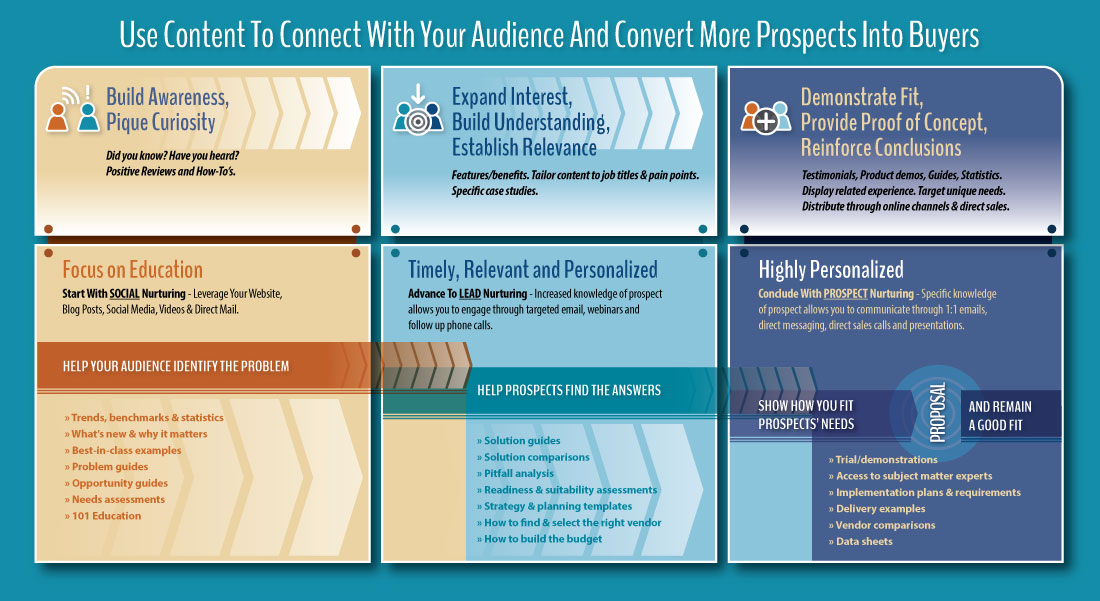Remember when people thought the world might come tumbling down on the eve of Y2K? The internet was new and many businesses were deciding if it even made sense to develop a website. As we near 2017, most companies have made that investment. Unfortunately, far too many haven’t progressed beyond the basic stage and miss out on revenue opportunities. As you embark on goals for the new year, make sure you ditch these online habits and capture the revenue you deserve.
Ignoring The Impact That Online Channels Have On Your Business
You have a website but if it’s,
- An old design,
- That’s not responsive and doesn’t conform to mobile viewing,
- Which hasn’t been updated regularly,
- And doesn’t represent your capabilities,
- Regularly contain new content,
- Or have information that helps customers and prospects learn about your business,
- And isn’t optimized for search,
Then you are ignoring the fact that people search the web for information to help them make purchases. Any one of these gaps will cause potential buyers to leave your site and impact potential leads and sales.
Instead of losing opportunities, plan a next step. Start by learning the critical information you should incorporate on your site. Studies indicate that the three most important categories your audience looks for include:
- Product and services information
- Contact details
- Company information
What are your solutions and how do your capabilities set you apart from the competition?
Construct a framework and then look at dedicating the internal resources or consider using outside support to elevate your position.
Not Connecting Business Goals To Your Website
If you are a commercial printer and need a new press, you purchase one that fits your production requirements. A new piece of equipment may look good in your operation but you don’t make money buying a long run press when you have short run needs.
Similarly, a well designed website makes a good first impression. However, if it doesn’t complement the goals of the business, it provides little benefit. Arguably, the time, effort and expense, and attention diverted away from other projects, may put this website into the overhead category.
Avoid the problem by defining the purpose.
A website can connect to company goals in a variety of ways.
Looking to grow your business? A website can help you generate more leads and connect with customers.
Don’t want to invest heavily in the lead generation process but want to capture new business if there’s an opportunity? Your site can be designed to enhance referrals.
Are you looking to stand out as an authority in a certain industry or do you have a new capability you’d like to introduce? Then your website can provide thought leadership that enhances your brand and market position.
Effective websites support the overall business objectives of the company and provide significant value. Yours can too.
Ignoring The Importance Of Content
Today, buyers are forming purchasing decisions online. An actual conversation is a thing of the past! Well, not entirely, but contact with a prospective supplier typically occurs well after the buyer has armed themselves with information from other sources. This makes content on your site more important than ever. Content is the vehicle that provides the education, industry trends, product comparisons and other valuable information that a sales rep provided in the past. It ensures that prospects are learning about your services even if they aren’t speaking with you directly.
Just like your web strategy needs to connect with your business goals, content should complement the objectives of your website. And the best way to ensure the quality and quantity of information is to plan.
That plan should include:
- Identifying your target audience - Who is most likely to make a decision on purchasing the capabilities you provide?
- Identify optimal content topics - Develop a list and then cut out the hardest to create and least helpful. Focus on being useful first. Commit to creating the topics that survived the cut.
- Determine where the content goes - Whether it’s a web page, a PDF download, a blog or social media post, define the distribution channel.
- Stay organized and maximize your content benefits - An editorial calendar is a great way to define the who, what, when and where of your content.
Only Using Content Online
If you are developing content for your website or other online channels, there’s no reason to restrict its use. Your sales team can effectively use this content in a variety of ways. Both current customers and prospects will benefit from the educational material, industry trends, product comparisons and other valuable information that you develop for online distribution.
Communicate with your customer facing staff. Demonstrate the content you have developed. Guide them on how to use the information with their current selling opportunities. You may also consider leveraging marketing automation. One of the numerous benefits is that you can publish information for your sales team on a regularly scheduled basis, to their broad audience, allowing them to devote their time to 1:1 conversations.
Develop New Online Habits
Ditching these online habits and replacing them with better planning and execution will allow you to generate more selling opportunities and exceed your financial goals in the new year!



 Insight Delivered Directly to You Interesting topics, great offers and free marketing tools.
Insight Delivered Directly to You Interesting topics, great offers and free marketing tools.

